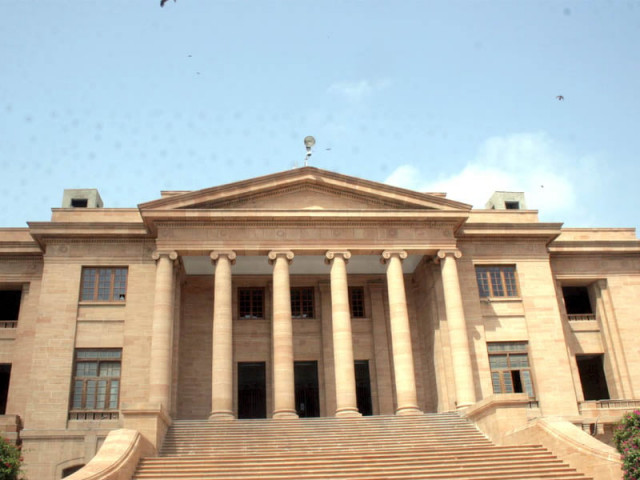Blocked: SHC questions if govt plans to ban more websites after Youtube
The petitioners claim the ban on the video-sharing website is a violation of fundamental rights.

The Sindh High Court (SHC) issued notices to the information ministry and the chairperson of the Pakistan Telecommunication Authority (PTA) to explain if they intend to block more websites, much like the ban on the video-sharing website, Youtube.
A division bench, headed by Justice Munib Akhtar, directed the IT ministry’s secretary and the PTA chief to file their comments by August 12.
A group of people from different walks of life had, in April this year, taken the IT ministry and the internet regulatory body to court over the ban on Youtube.
The petitioners, who include students, teachers and bankers, said that it was the duty of the government to safeguard the Internet - a medium of free expression and speech much like the print and electronic media. They contended that the government must protect it from censorship and ensure open and free access to it. The censorship of video-sharing platforms such as YouTube has had a disastrous impact on Pakistani students, teachers, and entrepreneurs using YouTube for educational, religious, commercial or entertainment purposes, they argued.
The petitioners suggested that the PTA could ban specific URLs instead of placing a blanket ban on YouTube. They cited the examples of countries such as Bangladesh, Saudi Arabia, India and the Maldives that have banned specific URLs with objectionable material. But, it is only Pakistan that has persisted with a complete ban on YouTube, much to the detriment of its citizens and their fundamental rights.
With the ban on the Youtube, the petitioners alleged that the government has also infringed upon the citizens’ right to privacy, protected by virtue of Article 14 of the Constitution, by blocking proxy web sites. “Proxy websites are used by people who are conscious of their online privacy and also by those who wish to keep their personal details, such as bank accounts and personal communication away from the prying eyes of the Internet service providers and other hackers,” they maintained.
They pleaded the court declare the censorship and arbitrary ban on certain sites such as YouTube in Pakistan as a violation of the fundamental rights guaranteed by the Constitution of Pakistan.
During Tuesday’s hearing, the students came up with a request against the government’s likely move to block more websites. They maintained that they would be undertaking online courses during the summer vacations and the blockade of more websites would adversely affect their educational activities.
They urged the two judges to restrain the authorities from blocking any more websites.
Published in The Express Tribune, July 16th, 2014.


















COMMENTS
Comments are moderated and generally will be posted if they are on-topic and not abusive.
For more information, please see our Comments FAQ